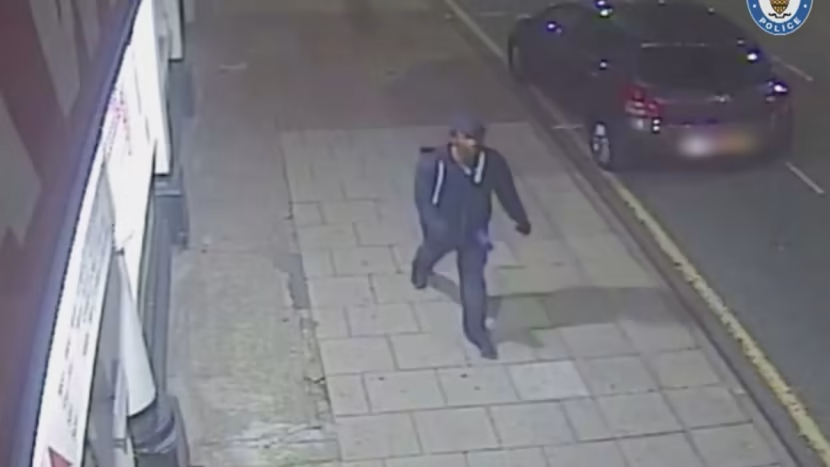A report, just published by the NHS, is a stark 171-page indictment of our protective services. The investigation details the shocking failures of every agency either side of the prison walls to safely manage Zephaniah McLeod, a plainly very dangerous and mentally unwell man with a long criminal history, who was released from prison without any restrictions or supervision.
In September 2020, less than six months after being let out, McLeod went on a late-night killing spree with a knife in Birmingham city centre. He murdered one young man and maimed eight others, before being arrested by armed police. As with the recent eerily familiar atrocity in Nottingham, his victims were selected at random and totally innocent. He is now detained indefinitely in a high security hospital with a minimum prison sentence of 21 years.
All the agencies around the table decided in effect that this overwhelmingly dangerous mentally ill man was just too difficult to bother with
Who do you think should decide if dangerous offenders are risky? Most ordinary people would hope and expect that prison and probation services work together to decide if someone needs supervision after they are released. But every agency involved with McLeod dropped the ball – with catastrophic results.
What makes it worse is that they had nine years to get it right as McLeod shuttled between prisons for various violent offences, with his delusional behaviour getting worse and his custodial behaviour getting ever more confrontational. His previous convictions included possession of knives, imitation firearms, threats to kill and domestic violence. Meanwhile, his paranoid schizophrenia diagnosis was largely untreated and he frequently did not comply with licence conditions for his brief periods at large.
His chaotic, confrontational behaviour had resulted in him being recalled to prison multiple times before his latest attack. Yet astoundingly in 2020, when he was released from HMP Parc in South Wales, authorities didn’t even know where he had gone until he asked for help in Birmingham.
If all this professional blindness seems criminally negligent, you’re going to need to lie down for the next bit. Offenders whose past behaviour indicates a propensity for future violence are supposed to be supervised by multi-agency public protection arrangements – known as MAPPA. The concept looks sound. Different professional agencies are grouped around a dangerous offender with the information and resources to monitor and manage the risks they pose to the public. In practice, as we have seen with repeated and awful failures – including blunders that let convicted terrorist Usman Khan attend a conference in London where he murdered two young people – it is not fit for purpose.
Organisational silos, a lack of interoperable IT, different goals, poorly trained attendees – all of these have conspired to fatally hobble this approach. But even with a system as clunky and flawed as MAPPA, you would not expect a public protection case to be discontinued because the offender wouldn’t cooperate with it. Yet this is precisely what the NHS serious case investigation concluded in the case of McLeod:
‘The reason for the deregistration was recorded as being due to H’s lack of engagement with agencies trying to support him.’
All the agencies around the table decided in effect that this overwhelmingly dangerous mentally ill man was just too difficult to bother with. Professor James Treadwell, an academic and former probation officer with the rare distinction of actual experience in dealing with highly risky people, spoke of the ‘terrible, inconceivable complacency’ evident in this tragedy.
Inevitably, this incompetence will be drowned in professional obfuscation. We have bureaucratised risk management to such a degree that accountability is meaningless, especially when there are so many rules that put the rights of the offender above the safety of the public. But in the case of Zephaniah McLeod the evidence is overwhelming – this was professionals not doing the jobs they were paid to do.
I have argued for years now, in the case of terrorists and others who are seriously dangerous, that we need to replace our fractured response with one national, risk management agency assertively supervising and controlling offenders from conviction to the end of community supervision and beyond.
Ministers remain addicted to tinkering at the edges of a discredited process. Unless or until we fundamentally overhaul our risk management system, we will have more offenders unsupervised and more devastated families like those of Jacob Billington. Jacob was murdered by McLeod simply for being in the wrong place at the wrong time. He was the victim of incompetence and missed opportunities by prisons, police, probation and mental health services. On receiving this shameful report, Jacob’s mother said, ‘I will never see what Jacob would have become. He died due to a catalogue of errors and poor practice, and this I simply can’t forgive.‘ Take this to the bank: no one will ever be held accountable.







Comments